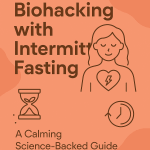Hey there, friends! Today, let’s embark on an exciting journey into the world of gut health. You might not realize it, but that little ecosystem of bacteria in your gut—the microbiome—holds the keys to not just your digestion but also your mood and overall wellbeing. So grab a cup of your favorite tea, get comfy, and let’s dive in!
Understanding the Microbiome
First things first, let’s talk about what exactly the microbiome is. Picture a bustling city, filled with diverse inhabitants all working together to create harmony. That’s your gut microbiome! It’s made up of trillions of bacteria, viruses, fungi, and other microorganisms. Each one plays a unique role in keeping our bodies functioning smoothly.
Did you know that your microbiome starts developing even before you’re born? That’s right! The journey begins in the womb and continues during birth. Factors like whether you were born via C-section or were breastfed can greatly influence the bacteria that first colonize your gut. As you grow, your microbiome continues to evolve based on your diet, environment, lifestyle, and even your stress levels. It’s a fascinating, ever-changing community!
But why is diversity in your microbiome so important? Well, a rich variety of bacteria helps maintain a balanced gut environment. This balance is crucial for digestion, immune function, and yes, even your mood. When our microbiome is diverse and healthy, we’re more likely to feel our best!
The Gut-Brain Connection
Now, let’s get to the really exciting part: the gut-brain connection. Ever heard of the gut-brain axis? It’s like a superhighway of communication between your gut and your brain. Imagine all those little bacteria sending messages back and forth, influencing everything from your mood to your cognitive function.
One of the key players in this connection is neurotransmitters. For instance, did you know that around 90% of serotonin, the “feel-good” neurotransmitter, is produced in the gut? That’s right! So when your gut is happy and healthy, it can produce more of this vital chemical, helping you feel more balanced and joyful.
But it doesn’t stop there. The gut also communicates with the brain through hormones and even the vagus nerve, which acts like a telephone line. When something goes awry in the gut—like inflammation or an imbalance in bacteria—it can send signals to the brain that might result in feelings of anxiety, stress, or even depression.
The Impact of Gut Health on Mood and Wellbeing
Let’s take a closer look at how gut health directly impacts our mood and mental wellbeing. In recent years, research has revealed some compelling connections. For instance, studies have shown that people with certain mental health issues, like anxiety and depression, often have different gut microbiomes compared to those who don’t. This correlation suggests that the health of our gut could play a significant role in our mental state.
In one interesting study, researchers found that when people with depression improved their gut health through dietary changes and probiotics, many reported significant improvements in their mood. This is a game-changer! It suggests that by nurturing our gut, we might also nurture our mental health.
But what about the everyday effects? Think about how stress can mess with your gut. Ever experienced “butterflies” before a big presentation or a nervous stomach during a stressful event? That’s your gut reacting to your emotions! A well-balanced microbiome can help mitigate these reactions, allowing you to navigate life’s challenges with more ease.
Improving Gut Health
So, how can we improve our gut health and, in turn, our mood? It all starts with our diet. What we eat plays a huge role in shaping our microbiome. Foods that are rich in fiber, like fruits, vegetables, and whole grains, act as fuel for the good bacteria in our gut. These foods help promote a diverse microbiome, which is key to maintaining gut health.
On the flip side, there are certain foods we should be cautious about. Processed foods, excessive sugar, and unhealthy fats can throw our gut balance out of whack. They can lead to inflammation and negatively impact the bacteria living in our gut. So, think of your gut as a garden; you want to nourish it with healthy, wholesome foods while avoiding the weeds that can choke it out!
But it’s not just about diet. Lifestyle factors also play a critical role. Regular exercise is fantastic for gut health. It promotes healthy digestion and can even boost the diversity of your microbiome. Plus, it releases endorphins—those wonderful “feel-good” hormones that help elevate your mood!
Stress management is another crucial element. High stress levels can wreak havoc on your gut and your mood. Techniques like mindfulness, meditation, or simply taking time for activities you enjoy can help reduce stress and support a healthier gut.
And let’s not forget about sleep! Quality sleep is essential for overall health, including gut health. Aim for a good night’s rest to allow your body and mind to rejuvenate.
Practical Tips for Nurturing Gut Health
Ready to nurture your gut? Here are some practical tips to get you started:
1. Incorporate Probiotics
Probiotics are those friendly bacteria that can help boost your gut health. You can include them in foods like yogurt, kefir, sauerkraut, and kimchi. Consider adding a probiotic supplement if you’re looking for an extra boost
2. Eat a Rainbow
Aim for a variety of colorful fruits and vegetables in your diet. Each color represents different nutrients and antioxidants that support your microbiome. Think of it as a vibrant feast for your gut!
3. Stay Hydrated
Water is crucial for digestion and overall health. Make sure to drink plenty of water throughout the day to keep everything flowing smoothly.
4. Listen to Your Body
Pay attention to how different foods make you feel. Everyone’s gut is unique, so it’s important to identify what works for you.
5. Regular Health Check-ups
Don’t hesitate to consult with a healthcare professional about your gut health. They can provide personalized advice and recommendations.
Conclusion
So, there you have it! The amazing connection between gut health and mood is not just a fascinating topic; it’s a vital part of our overall well-being. By prioritizing our gut health, we’re not just supporting our digestion; we’re enhancing our mental and emotional health as well.
As we continue to explore this exciting field, let’s make conscious choices that benefit both our bodies and minds. After all, a happy gut can lead to a happier you! So let’s celebrate our microbiome and give it the love and care it deserves.
Here’s to a healthier, happier you—one bite at a time!














